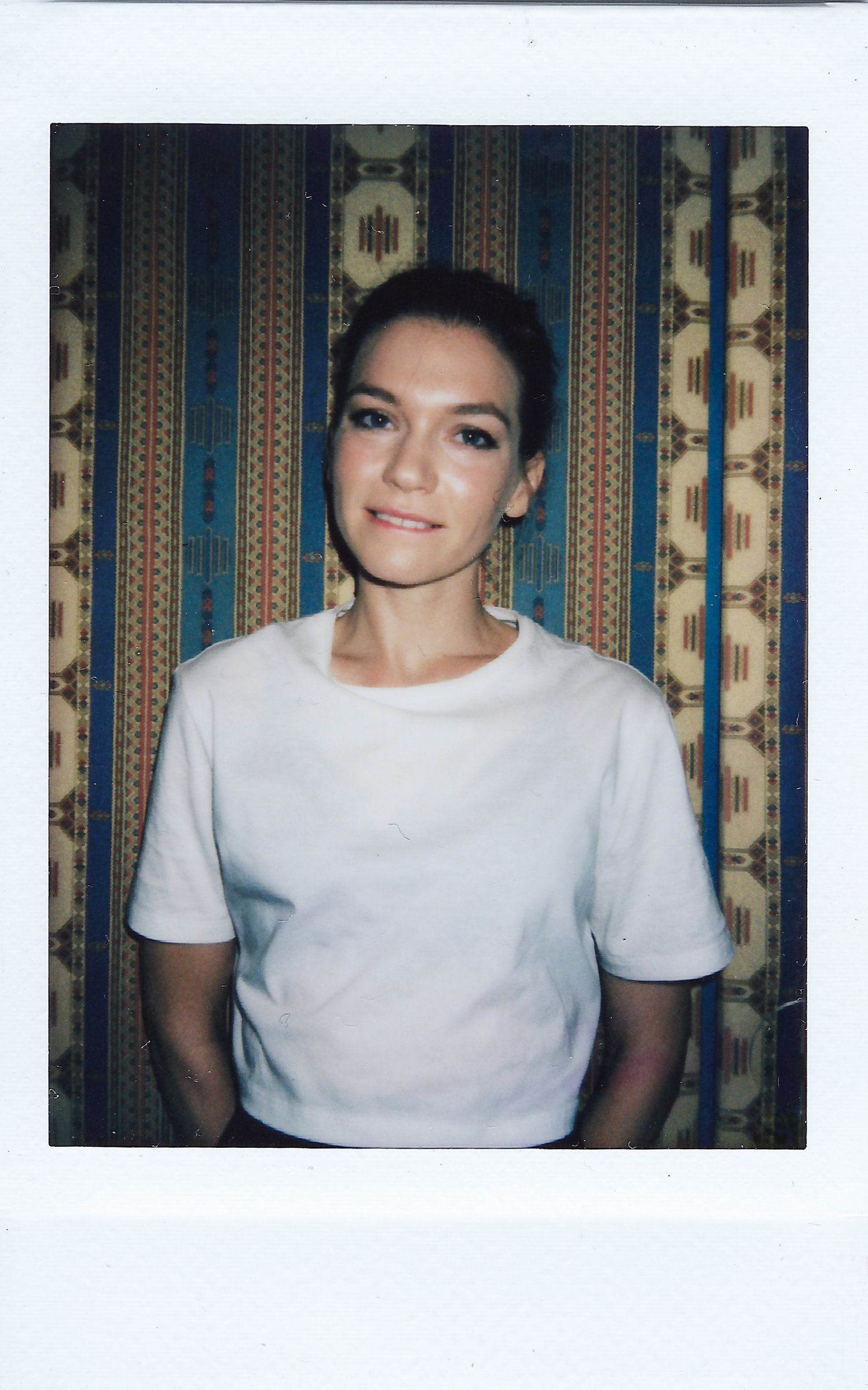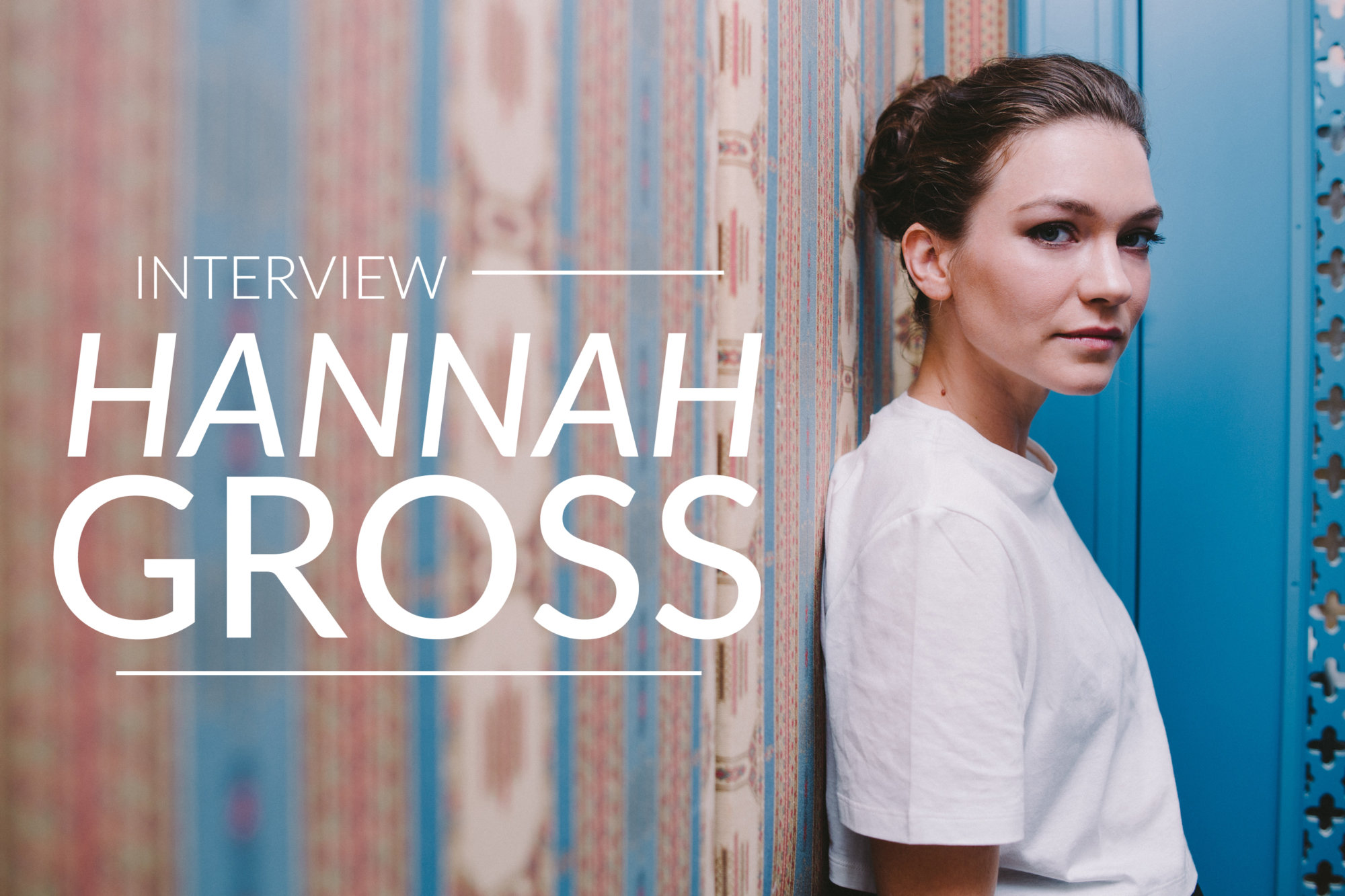We met Hannah Gross in Venice, where she was attending the Venice Film Festival to present her latest effort “The Mountain,” a film directed by Indie auteur Rick Alverson. We had seen the movie the night before the interview and it had left us completely speechless; We loved its wonderful imagery and fascinating thematic pursuits. We had also been particularly moved by Hannah’s dynamic performance and subtle use of silence.
Before “The Mountain,” we were already big fans of Hannah. Her work in “Mindhunter” and “The Sinner” had seduced us with a mix of sensuality, mysticism and boldness. That said, meeting her in person transformed us into even bigger fans. It turned out that besides being a great actress, Hannah was also an introverted, intelligent, beautiful and super funny human being.
The backdrop of the rain added a tad of drama to our interview as we dealt with the different logistic challenges caused by it. It also provided an almost surreal scenery that allowed us to have a magical and very intimate conversation with one of today’s most talented actresses.
_______________
How does it feel to be here in Venice, presenting your movie?
_______________
Very surreal, it’s very cool. I mean, I just feel I’m just along for the ride, I don’t feel like I have any ownership over this, so I’m really proud to be a part of it; it’s so fun.
_______________
Talking about “The Mountain,” what made you want to be part of that project?
_______________
I was a huge admirer of Rick [Alverson] before, and I honestly got a phone call from Ryan [Zacarias], the producer, and he was like, “Come and do this movie with Jeff Goldblum, Denis Lavant…” and I was like, “What? Excuse me? Denis Lavant?”.
He told me: “Yeah, Denis Lavant will play your father,” and I had this sort of brain spasm, and I thought, “It can’t actually be Denis Lavant. I was like, ‘Denis Lavant.’”
It must be the fiftieth time I repeat Denis Lavant.
“…I thought, ‘It can’t actually be Denis Lavant.’ I was like, ‘Denis Lavant.'”
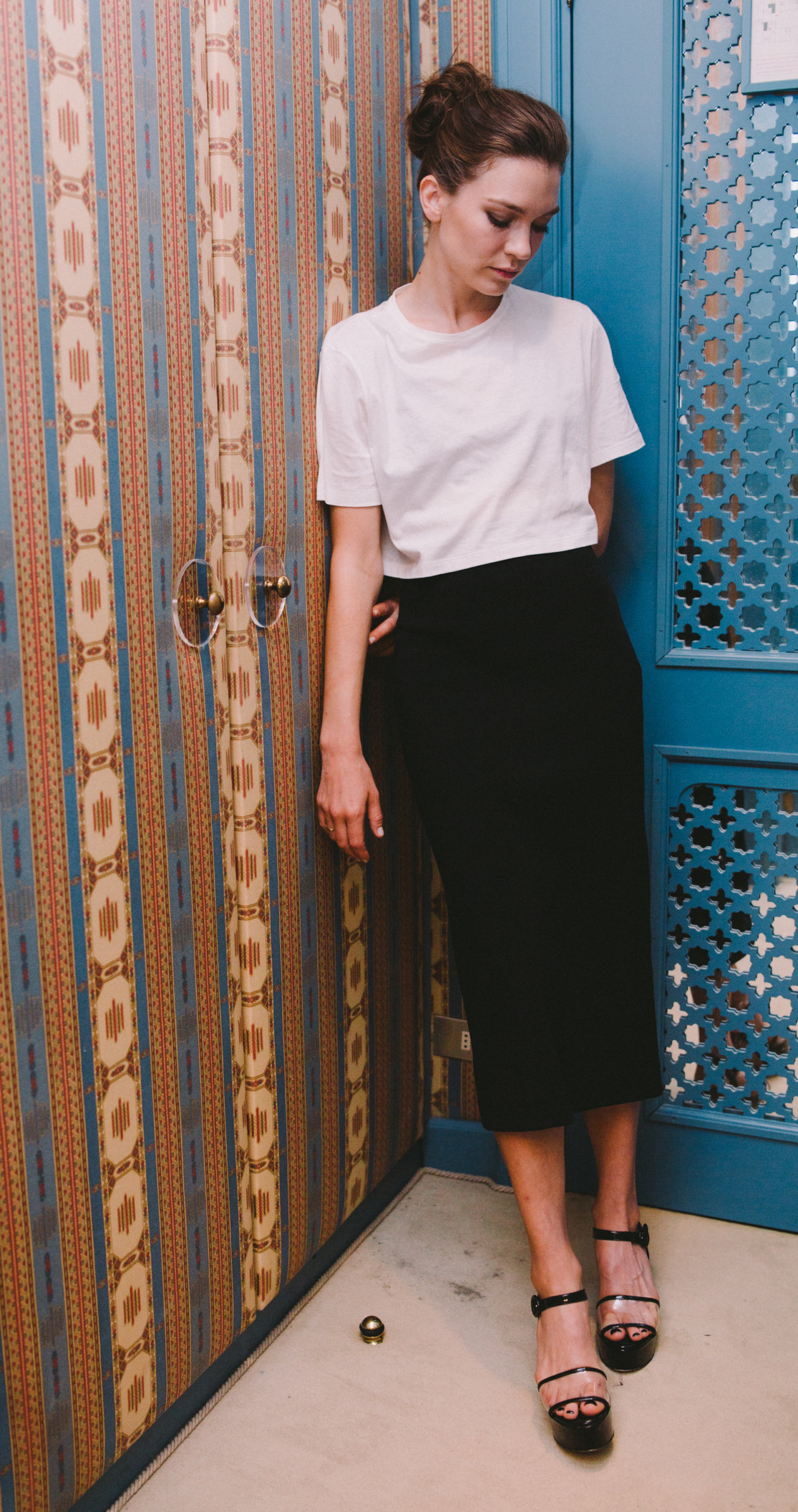
_______________
What does ‘the mountain’ mean to you?
_______________
I think it’s obviously an overused symbol of aspiration – and how caught up – and yet sort of engraved – in Americanism is the idea of individuality and aspiration.
There’s sort of an inherent unease, and I think American culture, because of this aspirational quality that it has, this idea of being always free, always bigger, is grinding every individual there… they always want more of themselves. It’s the greatest capitalistic society in the world.
_______________
Which metaphoric aspect do you like the most and which one do you find the most challenging to accept?
_______________
I think that one of the more interesting aspects of the film is that it can be read as allegorical, and it can be read as metaphorical like, “it looks like lobotomy, but it actually is…” and completely literal at the same time.
And so, I guess that’s the most interesting metaphorical aspect to me, sort of this continuing stranger-than-fiction type of concept. You don’t have to have metaphors to stand in for something, because the actual literal truth it’s so much weirder than anything you are going to come up with.
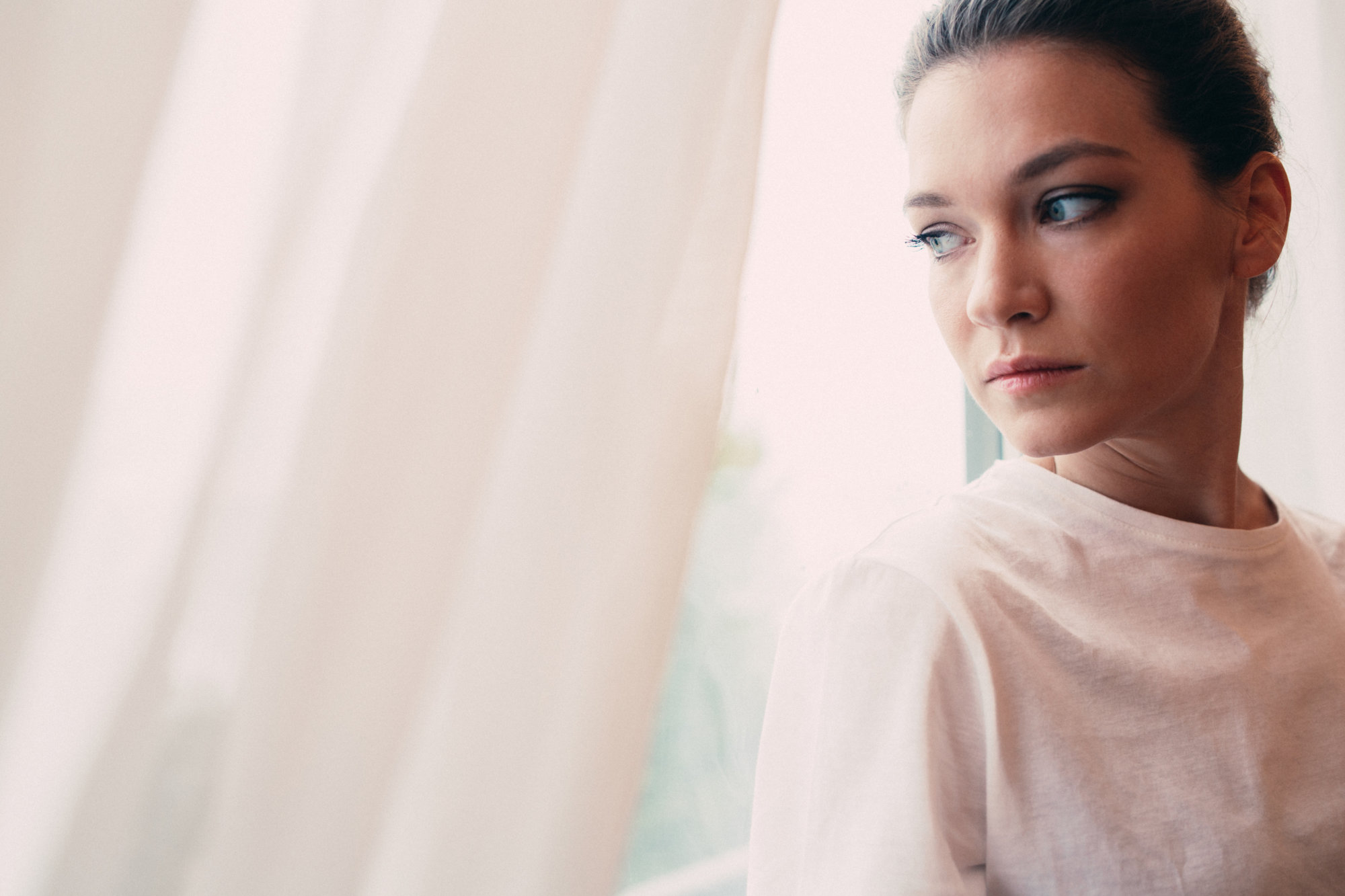
“…the actual literal truth it’s so much weirder than anything you are going to come up with.”
_______________
What reaction from the audience do you expect after watching the movie?
_______________
I don’t know; I’m not sure.
I had an interesting response, sort of surprising to me, whereas the crew obviously knew what the ending was, with the scene when we arrive at the mountain I was sitting there and thinking, “Wow, Rick has made a very light movie.” [laughs]
And thirty seconds later, the credits are rolling, and I was like, “Oh my God,” I was totally eviscerated. Like insights just popping out on the floor.
I don’t know, people might have the same reaction.
_______________
We just stared at each other, speechless for a moment, and then we spoke about it for an hour and a half.
_______________
Really? That’s kind of cool.
_______________
Yes, it’s definitely a movie that makes you talk, it makes you think.
_______________
I think that this movie is kind of insidious in nature. I don’t know, at least for me, it’s totally brutal.
It is truthful brutality, it’s not like trying to wake up the masses with horrific shit. It’s so grounded in reality and, at the same time, I feel it’s sort of surprising, the unpacking of emotion that comes after viewing is completely due to the form and the structure of the film. So it’s brilliant.
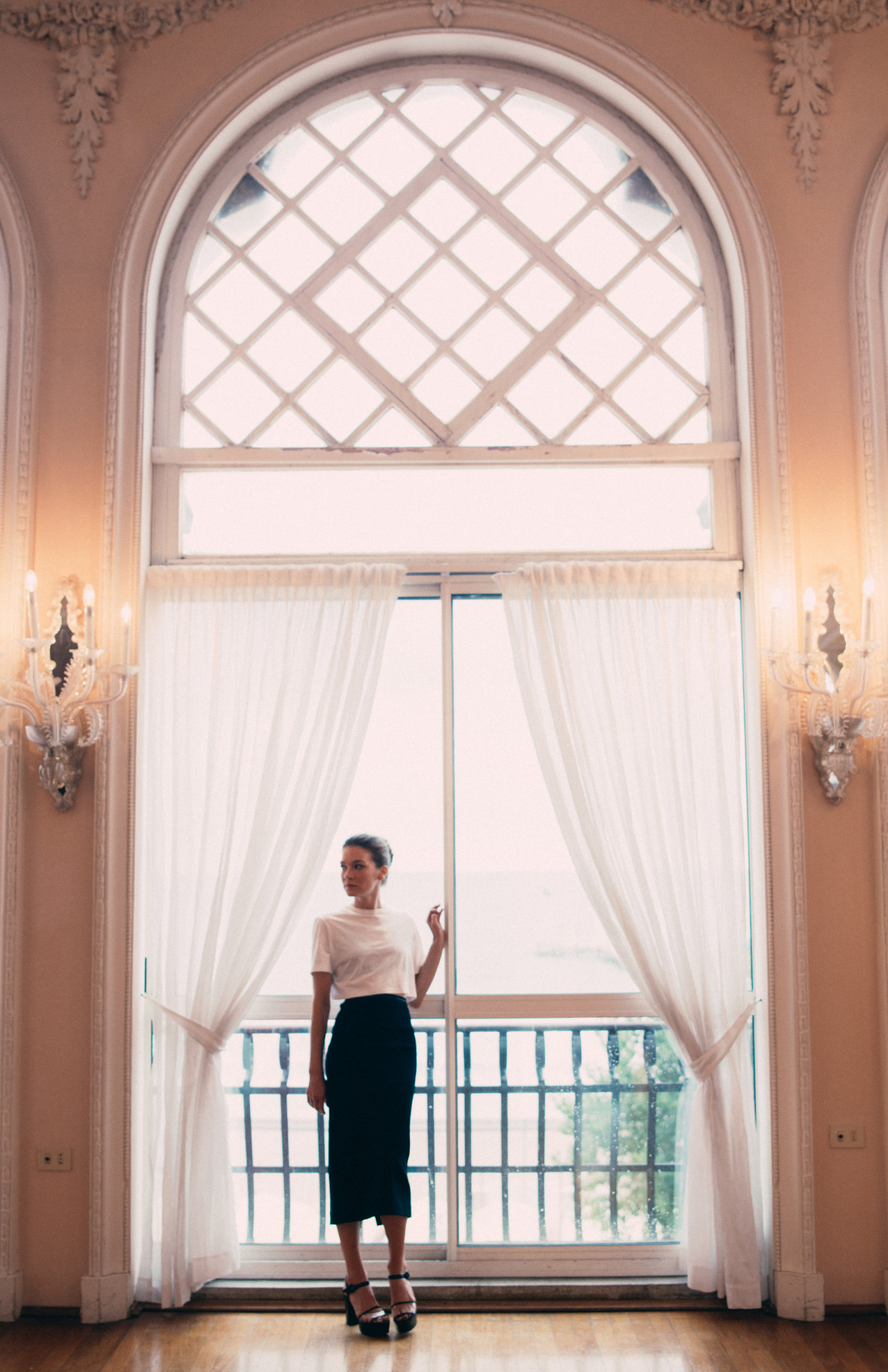
_______________
I think the movie is delicate but at the same time brutal. What is the difficulty of shaping a character for which you have to express a wide range of emotions through silence?
_______________
I feel like a total idiot, but I don’t know. I’m pretty shy and introverted, and it’s so annoying to hear that from an actress, but I’m so much more comfortable being in silence than speaking. You know, making noise. It was not challenging for me.
I was thinking about her the other day: my shooting time was so brief, maybe a week and a few days, and the character only appears in the last third of the film. I had a deep attachment to it, and I just wanted her to exist for a much longer time because it’s rare to find or to be given a character whose main motive in action is not based on conflict.
Their presence is completely in another space and time, so to speak, in whatever normal day to day circumstances.
That felt like a gift.
_______________
What was your research for the movie, especially regarding lobotomy and the time period?
_______________
I knew it just as a colloquialism, I guess. I didn’t know anything about who pioneered it, so that was really fun because Jeff’s character is really based on Doctor Freeman, who was super maniacal and fastidious about documenting his patients. You can still see the pictures online: he had before and after pictures of all these people. It was really insane.
I also had this really terrifying moment of shooting where they put on Perry Como, which is this ‘50s crooner, like a milk-toast type of dude, and who has like this perpetual look in his eye. It’s soft, like hopefulness. American hopeful puberty.
I was sitting there, and I was like “Oh my God,” because every after-picture is documented with the same expression. This hopeful, cyclic sweetness that’s super creepy.
And then the wardrobe designer, Elizabeth Warn, is a total genius: I had a lot of fun talking to her about the character and just swapping ideas back and forth. She was the first to turn us into Carson McCullers, who is a southern writer. I had also started reading Sylvia Plath again, it is like ten years later but it seemed appropriate. It was like a small regression back to my teenage self, to the feeling of being trapped in angst.
It was really fun to reconnect with those two women I had read about when I was about sixteen.
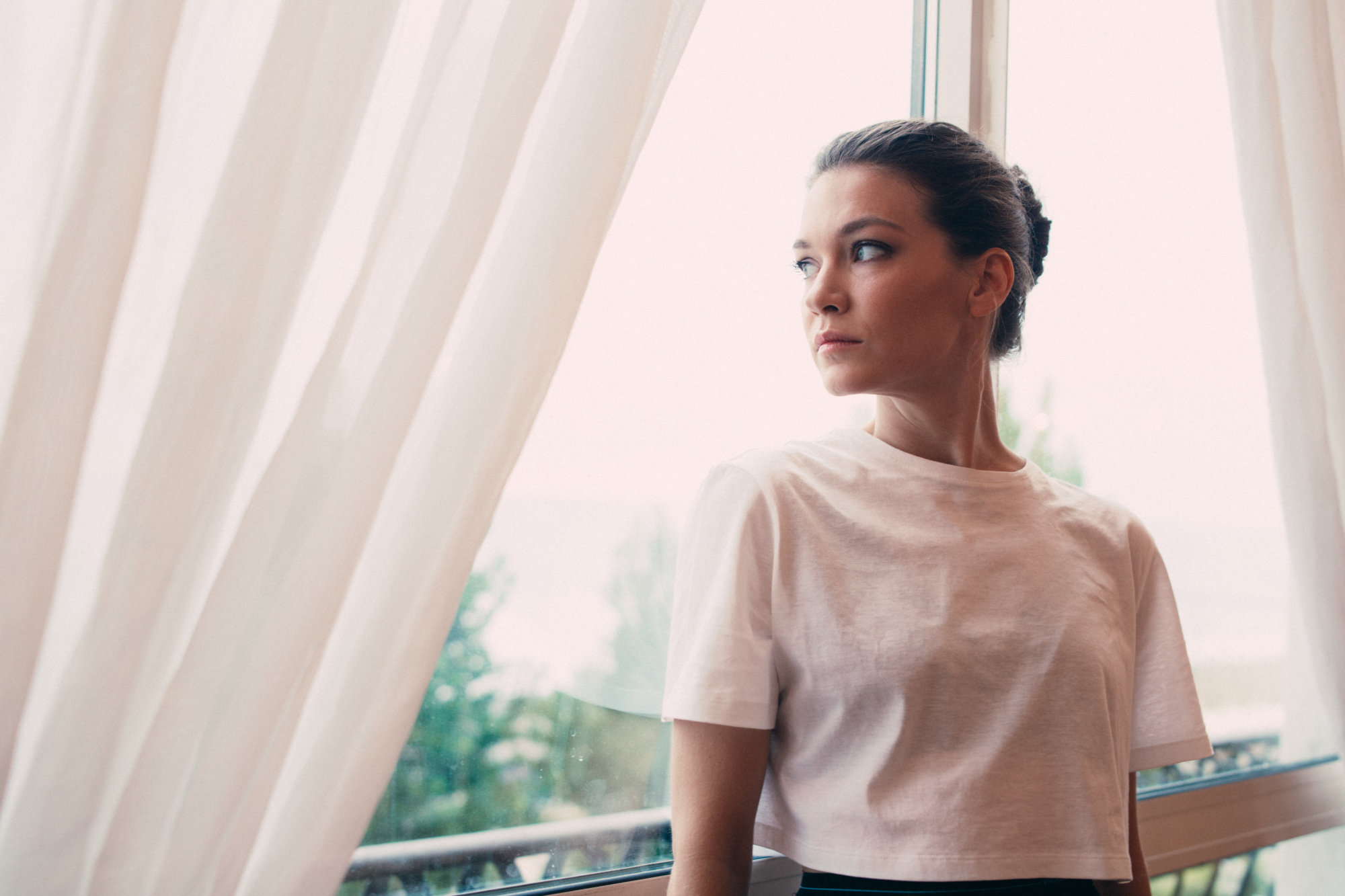
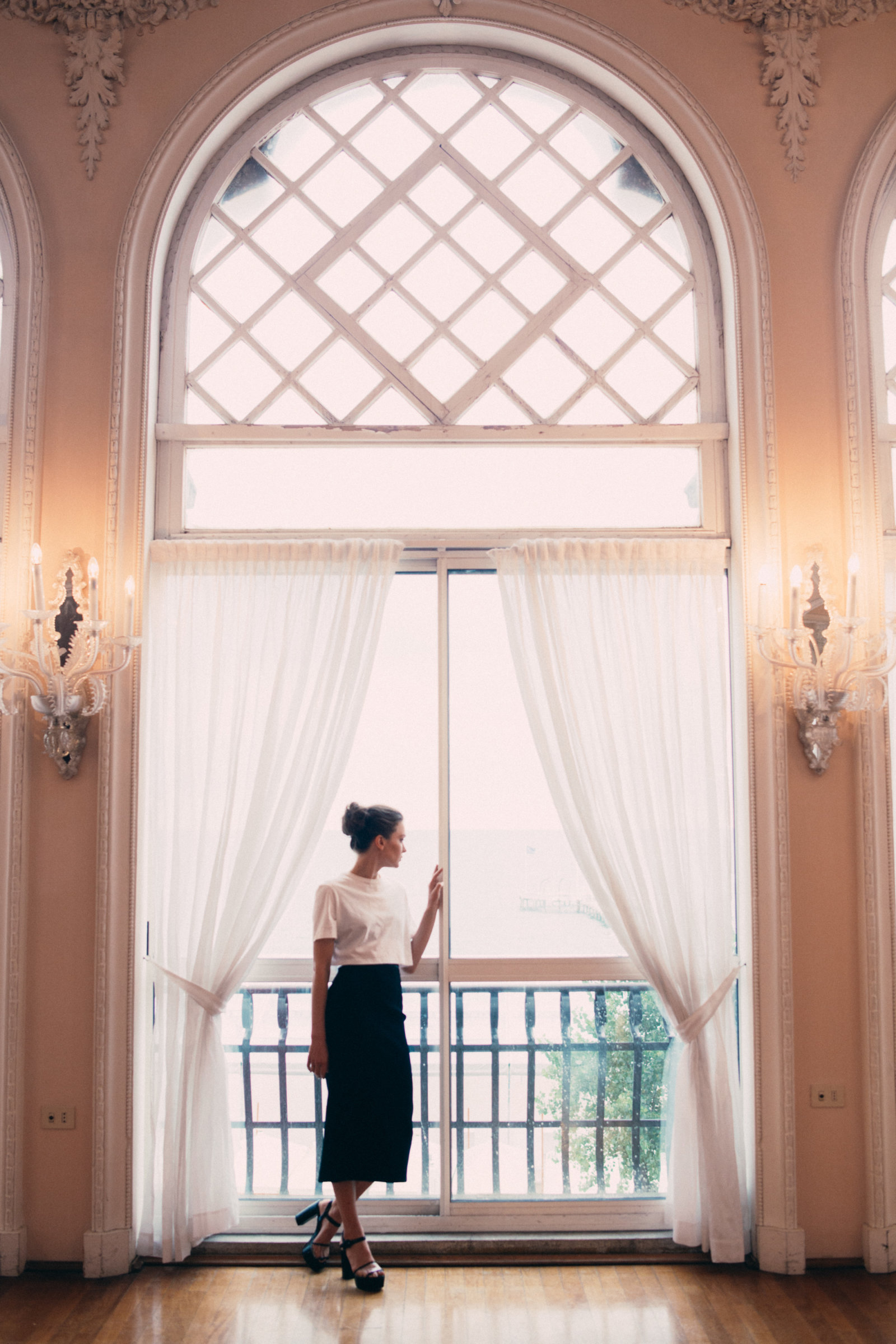
“I had a deep attachment to it, and I just wanted her to exist for a much longer time because it’s rare to find or to be given a character whose main motive in action is not based on conflict.”
_______________
We did a parallelism with “Mindhunter,” which we love. Do you like the psychological drama in particular or is it just a coincidence that you’ve been in both of them?
_______________
Yes, it’s funny because I’m in both and I didn’t find a parallelism myself between them, but thanks. [laughs] It seems like I should’ve been in both scenarios, like my character is out of the fringe of the action, being a woman.
_______________
About women’s empowerment, which in this industry we’re talking a lot about nowadays. What does it mean to you?
_______________
The danger of repetition, when you’re repeating something over and over again it loses meaning very rapidly. What does empowerment mean? I don’t know yet. That’s my main concern; I really have yet to figure out how to articulate this.
Obviously, like anyone, I’m so happy with the shift that is happening. It is real and it’s not some kind of veneer or trend, I hope. I think the fact that it is trendy is disconcerting. And that, of course, is not intersectional, is mostly coming out of white women who are talking about it and raising their voices about it. It’s also troubling but I think obviously there’s still a long way to go and there’s still a lot of backlash, whether it is for being at the forefront, or for taking part behind the scenes.
I don’t know, it’s hard to understand how the actual collective consciousness is shifting, if there is a factor or if it’s just a more topical thing. But I guess I hope people will just put something in the forefront and hope that it will gradually, over time, become part of everybody’s understanding.
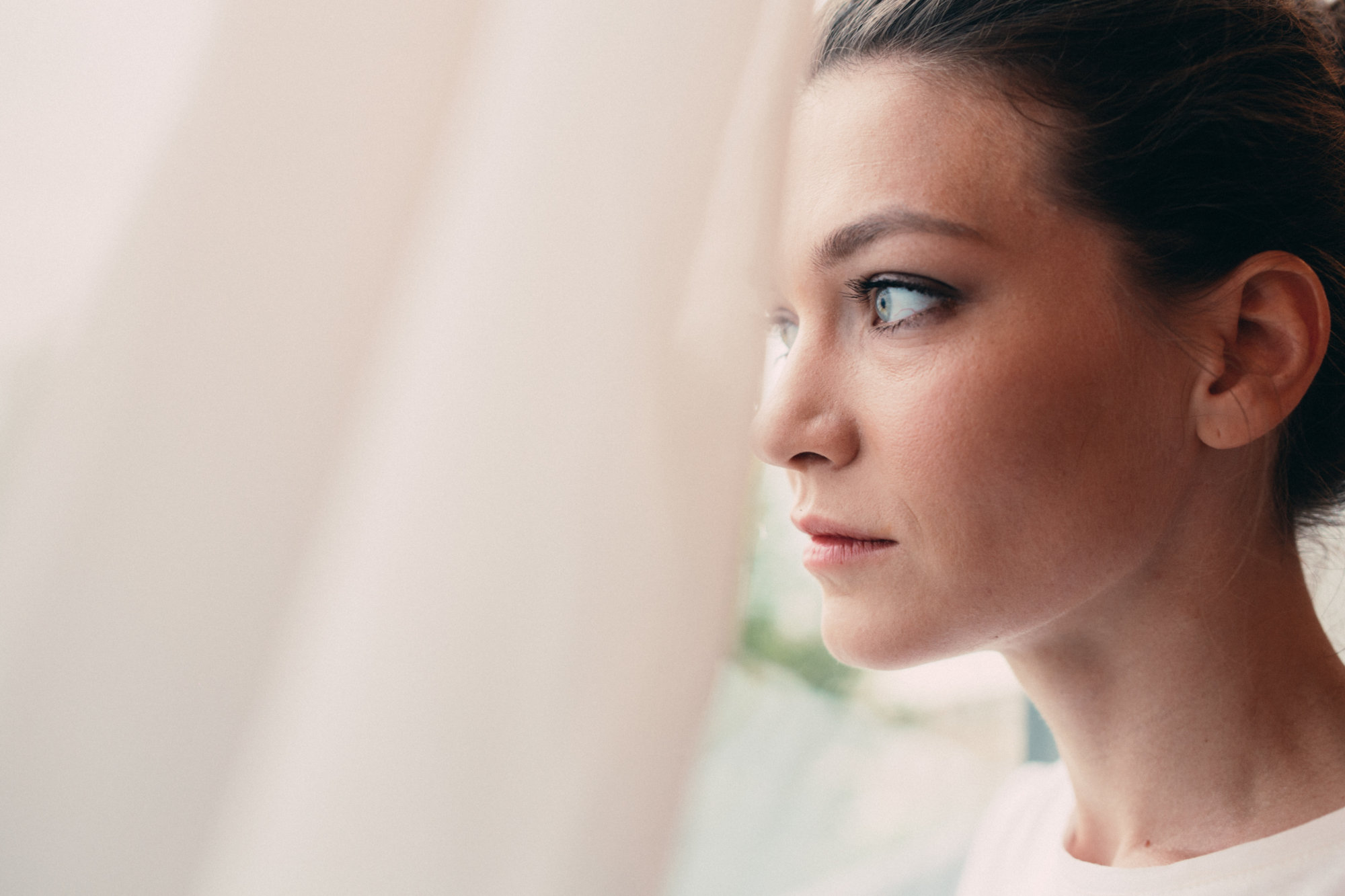
“The danger of repetition: when you’re repeating something over and over again it loses meaning very rapidly. What does empowerment mean? I don’t know yet. That’s my main concern.”
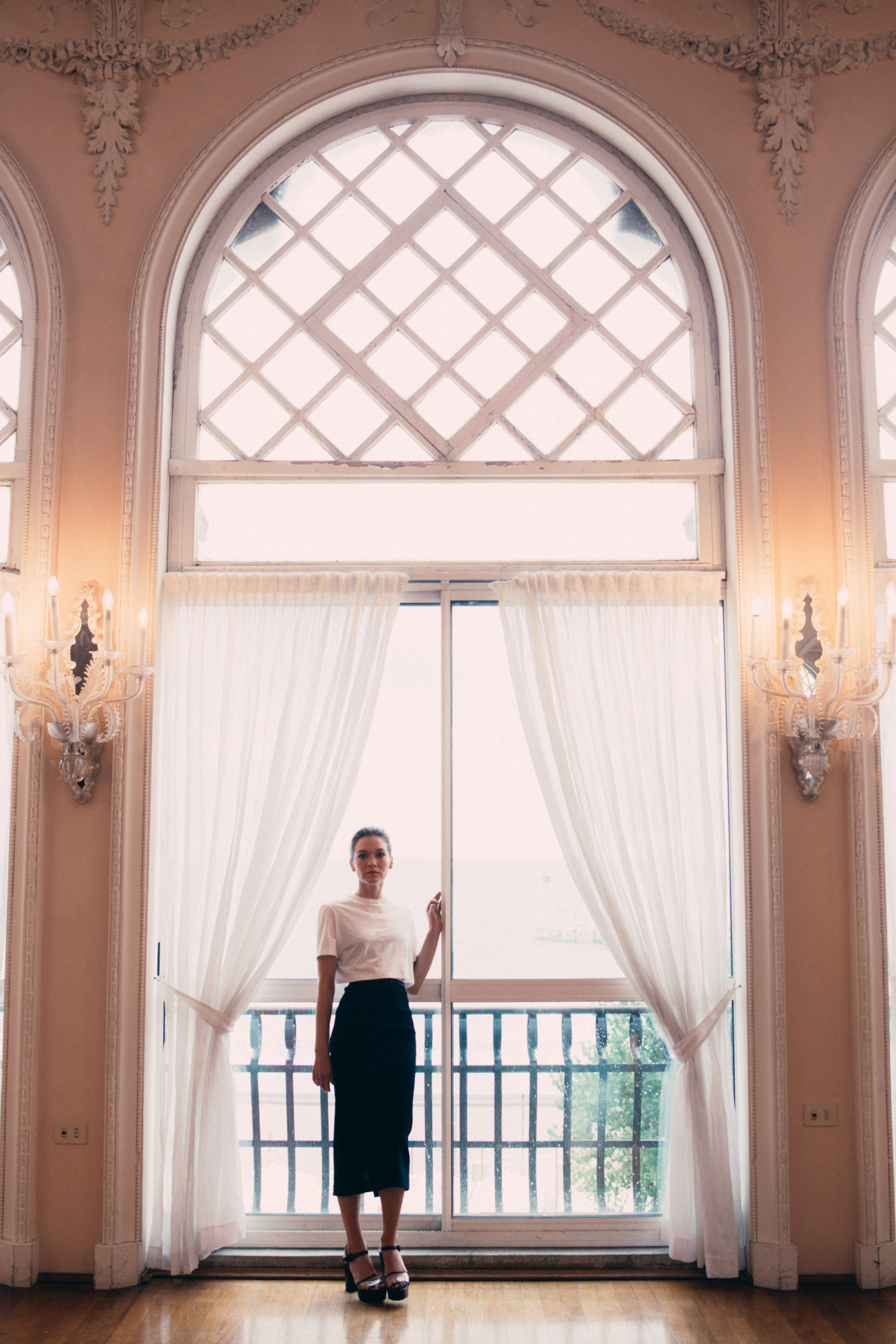
_______________
What were the difficulties you faced when you started your acting career and how did you get past them?
_______________
I don’t know; I was really lucky. It’s kind of like being a doctor’s son: it was definitely not pushed on me, but it certainly enabled the delusion that it was possible having a career in this field and that it would’ve been easy. But getting into a film was totally like by chance, a fortune thing.
I went to a movie Matthew Porterfield’s “Putty Hill,” I was with my best friend, like since when I was three days old, and we met him, and then a few months later we started shooting the film “I Used to Be Darker.” So it’s been this very weird, organic feeling. At times I distress, and I should have more drive.
But yes, I’ve been very lucky.
_______________
What’s your favorite film?
_______________
“The Matrix.”
There are definitely other and definitely better films. I don’t know how to classify favorite, but when I was nine I got the VHS of “The Matrix,” and I watched this like every day for three months. And I can still watch it and get the exact same feeling.
_______________
The Last TV show you binge-watched?
_______________
“Broadchurch,” with Olivia Colman. That was a while ago. It’s really good, a really good British procedural crime drama.
_______________
Your epic fail on the job?
_______________
I don’t know; I do them daily! Yesterday I was like chastised for bringing my bag to the photocall, so there’s one. There are general varying degrees of being unprepared. Yesterday I was laughing, and it wasn’t even like a funny joke, but I guess I decided to exaggerate it and I headbutted the Aperol Spritz, which went flying. Yeah, it was really bad to waste it.
“I don’t know how to classify favorite, but when I was nine I got the VHS of ‘The Matrix,’ and I watched this like every day for three months.”
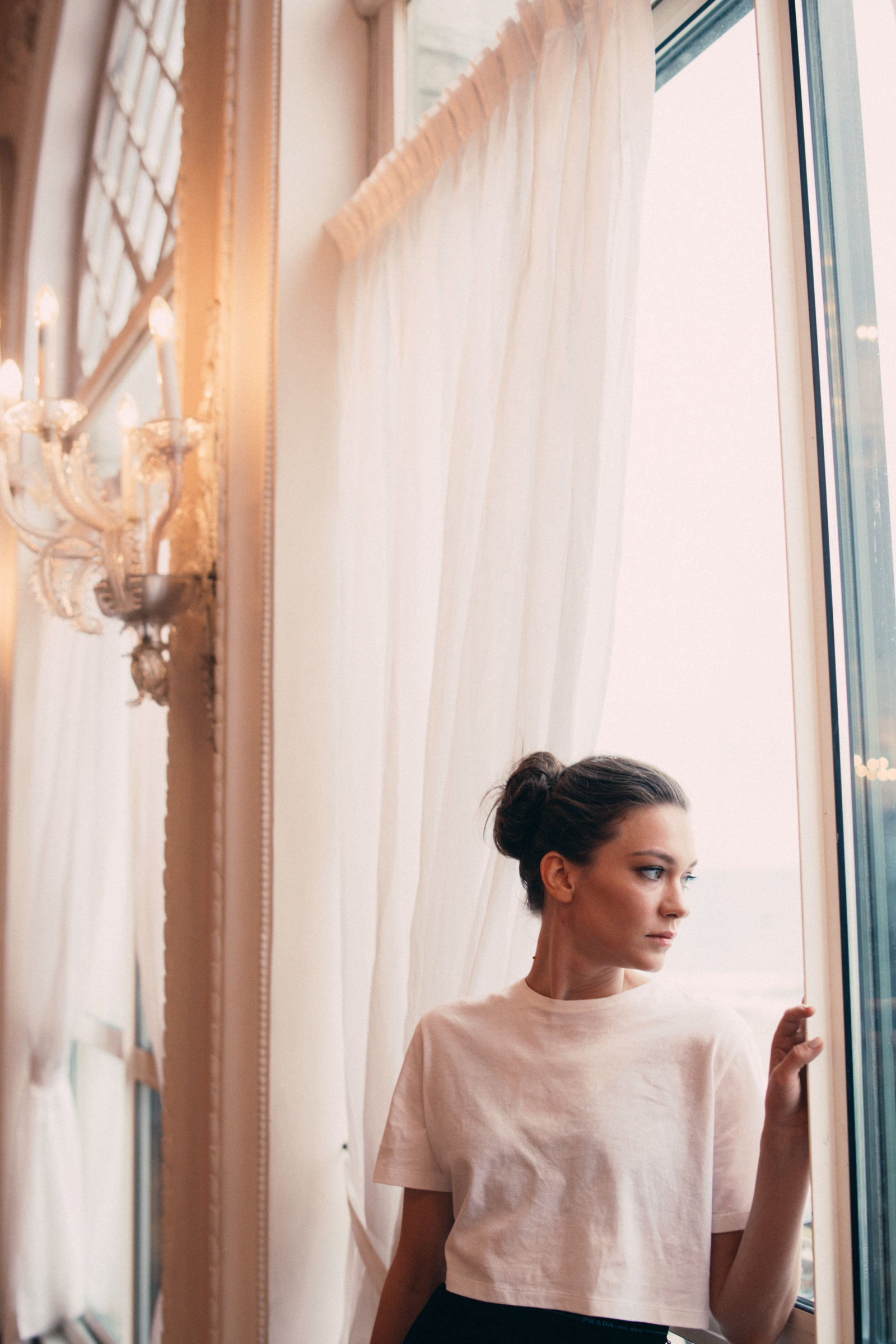
_______________
If you could host a dinner party with any three people living or dead, who would you invite?
_______________
I’ve always loved to read the answers to these questions; I love how people would say “Jesus.” [laughs]
I think…John Cage, Queen Elizabeth or Cleopatra and Anne Carrison.
_______________
The most beautiful thing while filming “The Mountain”?
_______________
I’d never been to Washington State before, and that was pretty gratifying because in New York there’s this strange feeling that nature has been so suppressed. That it’s dead. In upstate New York, even if you go outside it’s so strange, nature seems totally dead.
That’s why it was really beautiful there; I hope one day to live there. Trees, who wave and talk to each other.
And just getting to work with everybody, that’s one thing I really appreciated. It was really true. I was one day driving to get to set, and in a moment I thought “I could die and that would be fine,” with Jeff Goldblum sitting in the front seat. [laughs]
He’s great; he’s the most sensual man I ever met.
_______________
Yeah, it’s true. You can notice it by just seeing him on the red carpet or the photocall.
_______________
He’s mesmerizing. Everything he does is like sparkling with electricity, that’s strange. He was playing the theme of “The Elephant Man,” and Denis sitting beside me and playing. He always carries like six musical instruments on him, so I think he had the nose flute and a snail shell, and he would play the flute. This was good.
“I was one day driving to get to set, and in a moment I thought ‘I could die and that would be fine,’ with Jeff Goldblum sitting in the front seat.”
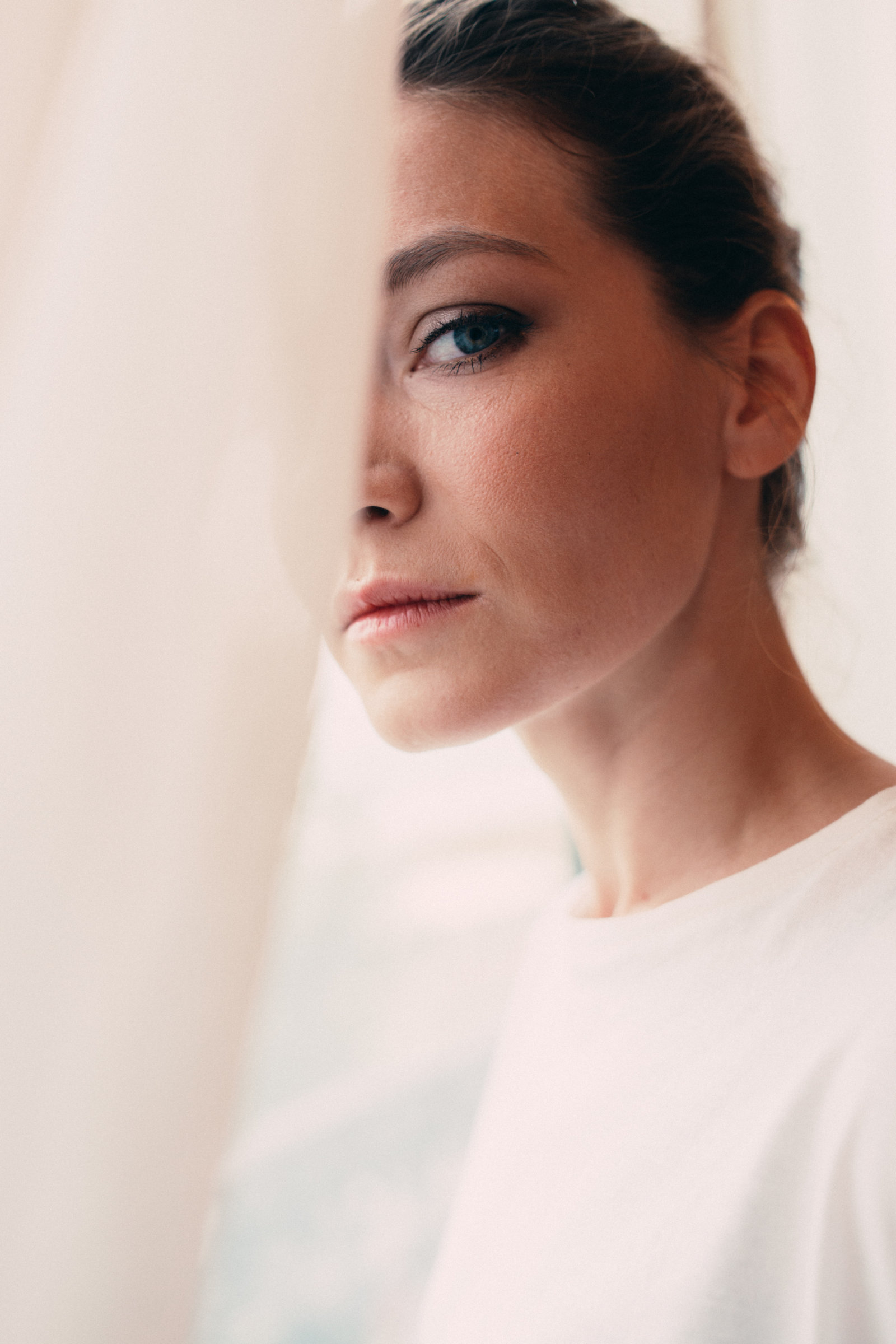
_______________
We’re curious: what’s the funniest thing you heard about Canadians?
_______________
There is this continual question, “oh, it must be really cold out there.” And I live literally one-hour flight away from New York, in Toronto, and it’s actually much colder. Then I don’t know, I was back in Toronto for a first time in a while, and I felt really softened, I felt like a huge pussy because I was out with friends and they wanted to take a walk, to go to the grocery store, and I was like, “I can’t! It’s too cold!”
_______________
What’s your next project?
_______________
I’m shooting a short film when I get back in New York with a friend of mine. And then I’m shooting a movie in Toronto, “The Education of Fredrick Fitzell.”
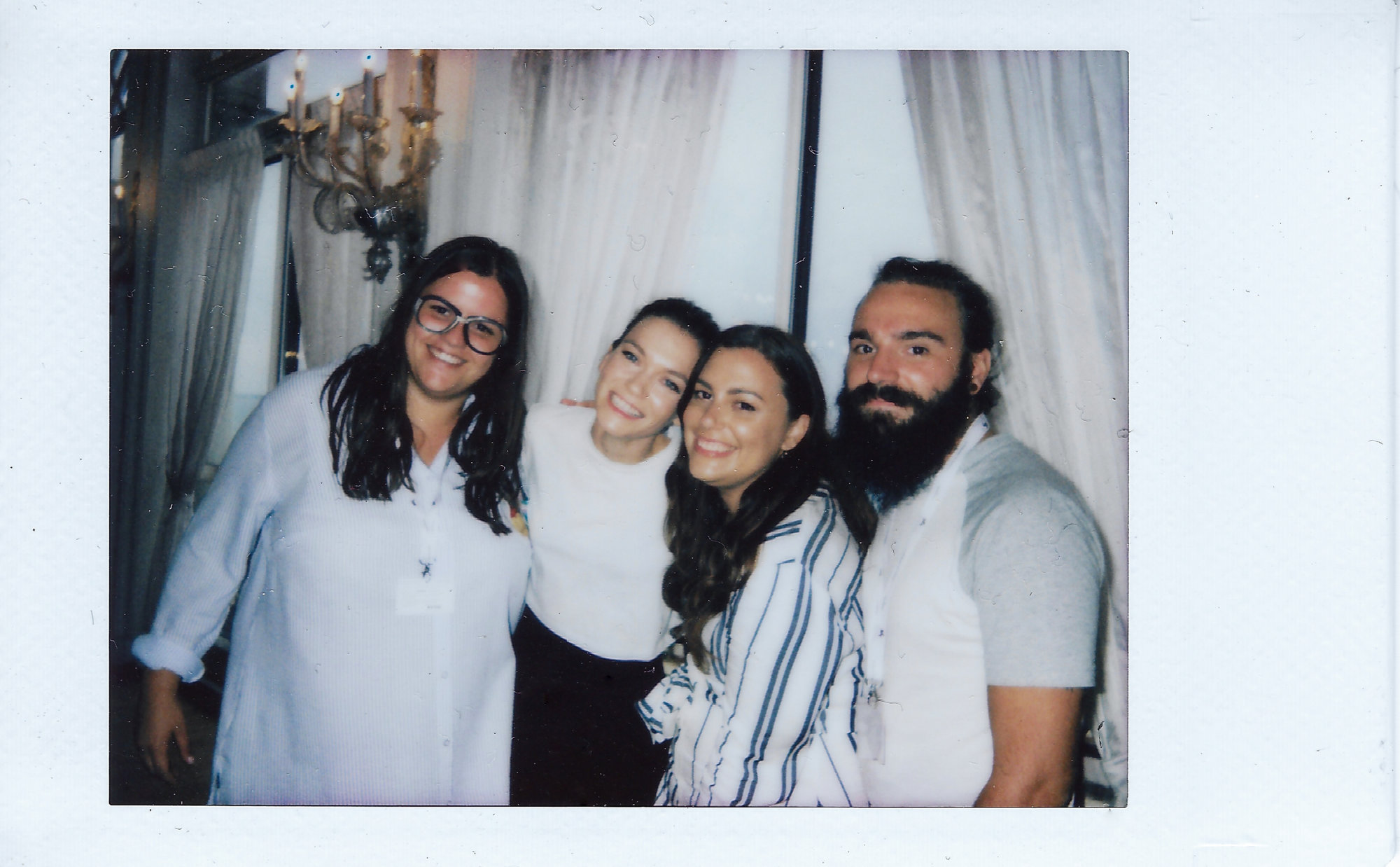
Photo Credits by Johnny Carrano
MakeUp by Giorgio Armani Beauty.
